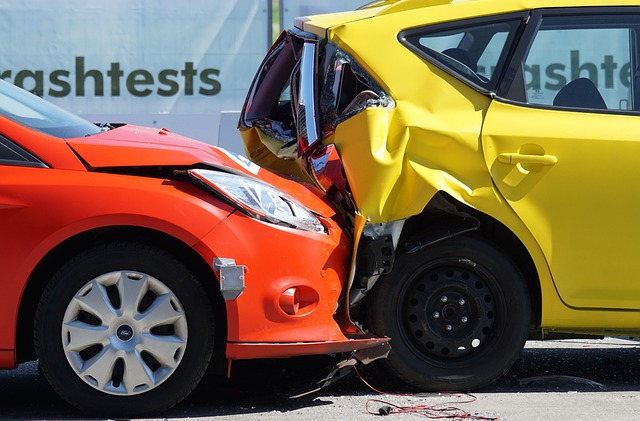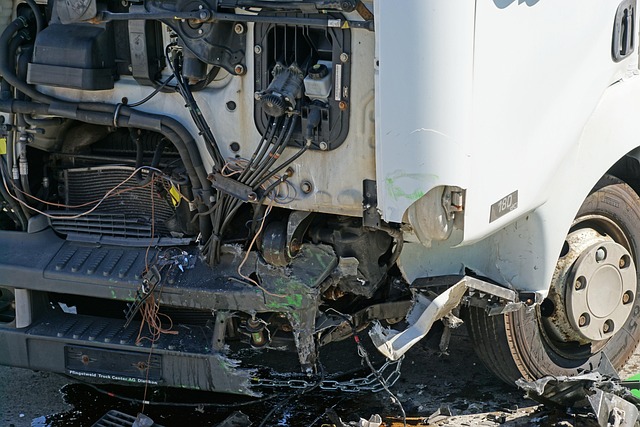Collision and comprehensive auto insurance are two primary types of car coverage, offering distinct protections against road events. Collision insurance covers vehicle damage from accidents, while comprehensive insurance provides broader protection against non-collision events like theft, vandalism, natural disasters, and animal incidents. Comprehensive insurance offers more inclusive coverage but comes at a higher cost; collision is more affordable but limited to accident-related damages. Understanding these differences is crucial for drivers to choose the best fit based on their vehicle, driving history, location, and risk tolerance, ensuring adequate protection without unnecessary expenses.
In today’s world, having the right car insurance is non-negotiable. Understanding the nuances of collision and comprehensive coverage is crucial for making informed decisions. This article provides a comprehensive overview of these essential policies, breaking down complex terms and highlighting key differences. We explore what each covers, when they’re necessary, and how they compare in terms of benefits. Additionally, we delve into common exclusions, factors affecting premiums, and tips for choosing the best protection for your vehicle, guiding you through the intricate landscape of collision vs. comprehensive auto insurance.
Understanding Car Insurance Policies: A Basic Overview

Car insurance policies are a crucial safety net for drivers, offering financial protection against unforeseen events on the road. Understanding these policies is essential as it enables drivers to make informed choices and select the right coverage for their needs. At its core, car insurance is composed of two primary types: collision and comprehensive.
Collision vs. Comprehensive Auto Insurance: Collision insurance covers damages to your vehicle when it’s involved in an accident, typically paying for repairs or replacement costs after a crash. On the other hand, comprehensive insurance provides broader protection against non-collision events like theft, vandalism, natural disasters, or even bird droppings damaging your car’s paintwork. Comprehensive coverage tends to be more inclusive, protecting your vehicle in various scenarios, whereas collision insurance focuses specifically on accident-related damages.
Collision Insurance: What It Covers and When It's Necessary

Collision insurance is a crucial component of auto coverage, offering protection against financial losses in case of accidents. Unlike comprehensive insurance, which provides broader coverage for various incidents, collision insurance specifically targets damages resulting from collisions with other vehicles or objects. This includes repairs or replacements for your car’s damaged parts, regardless of who is at fault.
While collision insurance is essential for safeguarding against the high costs of auto repairs, it’s not always necessary for every driver. Many factors influence its requirement, such as your vehicle’s age and make, driving history, and personal financial situation. Understanding the differences between collision and comprehensive auto insurance allows drivers to make informed decisions about their coverage needs, ensuring they’re adequately protected without paying for unnecessary expenses.
Comprehensive Insurance: Protecting Your Vehicle Beyond Collisions

Comprehensive insurance goes beyond what collision coverage offers, providing protection for your vehicle in a wide range of situations. While collision insurance is designed to cover damages resulting from accidents involving another vehicle or stationary object, comprehensive insurance takes care of other risks such as theft, vandalism, natural disasters, and even bird droppings or bugs getting into your car’s system. This makes it a popular choice for drivers who want peace of mind knowing their vehicles are protected against unexpected events.
In contrast to collision insurance, which typically involves high deductibles and is primarily focused on accidents, comprehensive auto insurance offers more extensive coverage. It can help cover the cost of repairs or even total loss if your vehicle suffers damage not related to a collision. This additional layer of protection is especially valuable for drivers who live in areas prone to theft or natural calamities, ensuring they’re prepared for any eventuality that may impact their vehicle’s condition.
Comparing Coverage: Collision vs. Comprehensive Benefits

When it comes to car insurance, understanding the difference between collision and comprehensive coverage is crucial for making an informed decision. Both types of coverage are designed to protect you financially in case of accidents or damage to your vehicle, but they serve distinct purposes. Collision insurance specifically covers damage to your car when it collides with another object or vehicle, including repairs or replacement costs. On the other hand, comprehensive auto insurance provides broader protection against a wide range of non-collision events, such as theft, vandalism, natural disasters, and animal-related incidents.
Comprehensive benefits go beyond collision coverage by including additional protections that can offer peace of mind. While collision insurance is typically required in many areas due to its focus on liability, comprehensive coverage is optional but highly recommended for drivers who want more thorough protection. By comparing these two types of benefits, you can tailor your policy to best suit your needs and budget, ensuring you’re adequately covered should the unexpected happen.
Common Exclusions and Limitations in Auto Insurance Policies

Auto insurance policies, whether collision or comprehensive, come with their own set of exclusions and limitations. These are stipulations that outline what isn’t covered under your policy. Common examples include damage caused by wear and tear, normal maintenance, or certain types of weather events like floods or earthquakes, unless specifically added as coverage.
When comparing collision vs. comprehensive auto insurance, it’s crucial to understand these differences. Collision insurance covers damages from accidents, but not always from other causes like theft or vandalism. Comprehensive insurance, on the other hand, provides broader protection against a variety of events, including natural disasters, animal-related incidents, and even theft or vandalism. However, both types of coverage have deductibles, which are the amounts you’ll need to pay out of pocket before your insurance kicks in.
Factors Influencing Comprehensive Car Insurance Premiums

Several factors determine your comprehensive car insurance premiums, with collision and comprehensive auto insurance playing a significant role. While collision coverage pays for damages resulting from collisions with other vehicles or objects, comprehensive insurance covers a broader range of incidents, including theft, vandalism, natural disasters, and animal-related accidents. The cost of these policies varies based on risk assessment.
Your driving history, claims record, vehicle make and model, safety features, location, and coverage limits all influence premium calculations. Insurers consider drivers with clean records and safe vehicles less risky, potentially leading to lower premiums. Conversely, a history of claims or high-risk vehicles may result in higher rates for comprehensive coverage compared to collision insurance alone.
Making an Informed Decision: Choosing the Right Coverage for You

When it comes to car insurance, making an informed decision is crucial. One of the key considerations is choosing between collision and comprehensive coverage. While collision insurance covers damage caused by accidents involving another vehicle or object, comprehensive insurance provides broader protection against various non-collision events like theft, vandalism, natural disasters, and even animal strikes.
Understanding these differences is essential in selecting the right coverage for your needs. Collision insurance is typically less expensive but offers limited protection unless you’re at fault in an accident. Comprehensive insurance, on the other hand, provides more extensive coverage but comes with a higher premium. Evaluate your driving habits, vehicle condition, and potential risks to determine if comprehensive or collision insurance—or a combination of both—is best suited for your situation.
